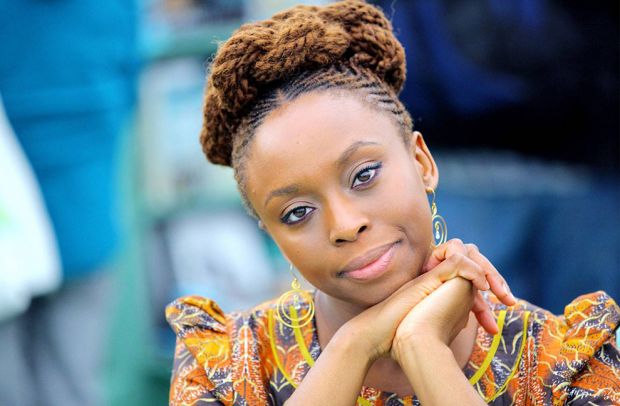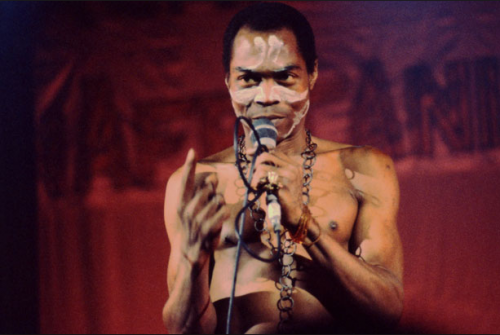Adichie’s danger of a single story

It has been seven years since the renowned writer; Chimamnda Ngozi Adichie shared her TED talk on the topic, “The danger of a single story” at a conference in 2009, but some writers and readers still focus on writing or reading a single idea of books. Here, CALEB AKINBORO appraises the writer’s TED speech on its relevance for more efforts to be done by writer coming up with fresh ideas in the world of literati.
Chimamnda Ngozi Adichie’s name rings a bell in the literary world. She is in the class of the new-born generation of fiction writers. Her first full-length work,Purple Hibiscus in 2003 was praised for its flavrous new narrative diction depicting rural and semi-urban Nigeria with intensive local colour.
Adichie’s second novel, Half of Yellow Sun published in 2006, centred on the short-lived Republic of Biafran, narrating a whole decades of event vis-à-vis to the war before she was born.
Having drunk from the cup of the late foremost author, Chinua Achebe, as a result of her parents’ residing in the University town of Nsukka, where they had been academics, Adiche successfully etched her name by winning literary awards of honour.
Her pet talk to young writers and readers at the Technology, Entertainment, Design (TED) talk in Oxford UK, in 2009, continue to re-echo based on the impact so far. There Adichie shared her early life encounter on reading and writing books, especially on the “The danger of a single story.” “I’m a story teller, and I would like to tell you a few personal stories about what I call ‘the danger of a single story’. I grew up on a university campus in eastern Nigeria. My mother said that I started reading at the age of two, although I think four is probably close to the truth. So, I was an early reader, and what I read were British and American children’s books.’’
According to her, she started writing early at the age of seven. She illustrated her stories with pencil and crayon. “I wrote exactly the kinds of stories I was reading; all my characters were white and blue-eyed, they played in the snow, they played in the snow, they ate apples, and they talked a lot about the weather, how lovely it was that the sun had come out.”
Despite the fact that she lived in Nigeria then, Adichie revealed how she was deceiving herself with a single all humorous fictional stories until she found out about African books.
“ Because all I had read were books in which characters were foreign, I had become convinced that books by their very nature had to have foreigners in them and had to be about things with which I could not personally identify. Now things changed when I discovered African books. There weren’t many of them available, and they weren’t quite as easy to find as the foreign books.
“But because of writers like Chinua Achebe and Camara Laye, I went through a mental shift in my perception of literature. I realised that people like me, girls with skin chocolate color, whose kinky hair could not form ponytails, could also exist in literature. I started to write about things i recognised.
“Now I loved those American and British books I read. They stirred my imagination. They opened up new worlds for me. But the unintended consequence was that I did not know that people like me could exist in literature. So what the discovery of African stories did for me was this; it saved me from having a single story of what books are”, she stressed.
Other experience she encountered apart from novels and books were also stated as she only believed a single story by not going further to know other relevant stories about them, this misled her understanding about those past experience because she only had one ideology of each experience.
She said, “All of these stories make me who I am. But to insist on only these negative stories is to flatten my experience and to overlook the many of other stories that formed me, the single story creates stereotypes, and the problem with stereotypes is not that they are untrue, but that they are incomplete. They make one story become the only story and the consequence of the single story is that it robs people of dignity, it makes our recognition of our equal humanity difficult and finally it emphasizes how we are different rather than how we are similar”.
Today, Adichie’s stories and the awards has especially in the famous Half of a Yellow Sun has helped inspire new, cross-generational communication about the Biafra war, because of the impeccable penning of the book was adapted into a film of the same title directed by Biyi Bamidele. “We do not associate wisdom with beginners, but here is a new writer endowed with the gift of ancient storytellers’’ Achebe once said of the book.
Adichie ended her TED talk by urging the young readers to read more of stories instead of reading a single story and having one idea in life.
“I would like to end with this thought; that when we reject the single story, when we realise that there is never a single story about any place, we regain a kind of paradise.










